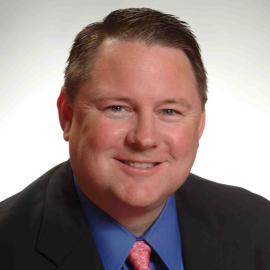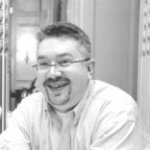 Lynn Utter, COO of Knoll, Inc. and Director of Wesco International, Inc. came last Wednesday to speak at the sophomore lyceum course. Through her back-and-forth banter with Dr. Prentice, the former ERB BHP alum enthralled students with humorous anecdotes and words of wisdom learned from her prolific business career.
Lynn Utter, COO of Knoll, Inc. and Director of Wesco International, Inc. came last Wednesday to speak at the sophomore lyceum course. Through her back-and-forth banter with Dr. Prentice, the former ERB BHP alum enthralled students with humorous anecdotes and words of wisdom learned from her prolific business career.
Utter graduated from the Business Honors Program, and went on to earn her MBA from the Stanford Graduate School of Business. She then worked in management consulting for five years. Utter said consulting provided a great opportunity to explore different career opportunities; however, “I’m a doer,” she affirmed. That drive to act, landed her in a VP slot for the Frito-Lay warehouse located in Denver. Afterwards, she worked for Coors Brewing Company and soon became the company’s Chief Strategy Officer. She now works as President and COO of Knoll, Inc., a modern furnishings and design company, and serves as a director on the board for Wesco International.
Across her diverse career journey, Utter has learned many lessons. One she learned while overseeing warehouse workers for Frito-Lay, was to listen before speaking and be open-minded and fair. She said it is important to establish credibility and make some tough decisions. While working for Coors, she improved the firm’s all-important bottling and canning plants by setting up joint ventures with the best firms in the world in those industries. By bringing in the partners, she helped Coors grow tremendously. Then she went on to work with architects and designers as President and COO of Knoll, Inc., stating that it was a great opportunity to lead such a large company that had a great brand and valued people.
During the Q&A session with the students, Utter took different questions concerning leadership and her career. She believes everyone is born with a “leadership muscle,” but like any muscle, you have to exercise and develop it. One student brought up the subject of the glass ceiling and how it had affected Utter. Utter stated how it was difficult at times, mentioning she has worked with 50+ white males who said they never worked with a woman before. She overcame this by “establishing credibility and promoting change from within.” In one of her anecdotes about a leadership program she partook in while in school, she said the program asked, “What do you want to do with your life?” “Honest answer,” she affirmed, “I wanted to run my own company.”
In her closing remarks, and throughout the presentation too, Utter stated how the students should seek out “people you can confide in, and confide in them.” “I’m all about people,” she said. “The companies that motivate their people are the ones that win.” Utter further stressed to each of the students that they should use their networks and develop the relationships with the people sitting next to them in the room. “Ya’ll are part of BHP. That’s something to be proud of. Don’t turn that off. You guys are going to graduate. Don’t lose track of each other. Find your friends and colleagues to take that journey with you.”
One student asked what legacy she would hope to leave behind. Utter replied that she hopes to leave a legacy where [she and her company] gave back to the community. She challenged the students, “What legacy do you want to leave?”
Written by BHP Sophomore Dennis Phelan




